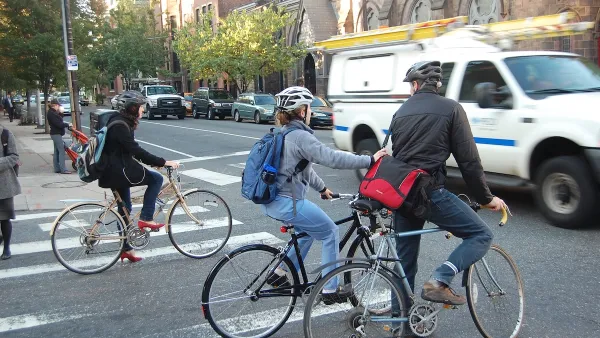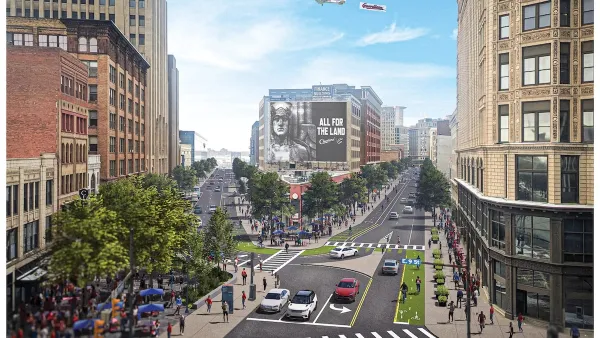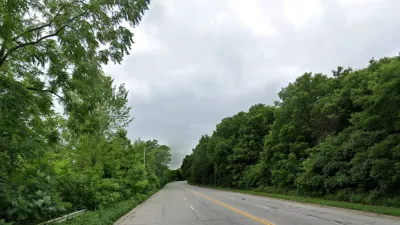Dogged by highly publicized lawsuits and complaints since their introduction six years ago, a new poll conducted by The New York Times shows widespread support for the city's new bike lanes.
It now seems clear that the voices raised in opposition to the construction of bicycle lanes throughout New York City belonged to a vocal minority of the city's residents. According to Michael M. Grynbaum and Marjorie Connelly, "When asked simply whether New York's bike lanes were a good idea or a bad idea, 66 percent of New Yorkers said they thought bike lanes were a good idea, according to the latest poll by The New York Times. A majority in all boroughs said they thought the lanes were a good idea, with support highest in Manhattan."
"Twenty-seven percent of residents called the lanes a bad idea, and 7 percent had no opinion or did not answer."
"New Yorkers who said they thought bike lanes were a good idea cited environmental, health and safety benefits, as well as the addition of more space for bicyclists to ride. Some respondents said they were simply happy that the lanes had encouraged bicyclists to stop riding on the sidewalk," write Grynbaum and Connelly.
"Among the quarter of New Yorkers who said they thought the lanes were a bad idea, the most commonly cited complaint was that the lanes hinder vehicular traffic. Some residents also described the lanes as creating dangerous street conditions."
FULL STORY: Most New Yorkers Say Bike Lanes Are a Good Idea

Planetizen Federal Action Tracker
A weekly monitor of how Trump’s orders and actions are impacting planners and planning in America.

Congressman Proposes Bill to Rename DC Metro “Trump Train”
The Make Autorail Great Again Act would withhold federal funding to the system until the Washington Metropolitan Area Transit Authority (WMATA), rebrands as the Washington Metropolitan Authority for Greater Access (WMAGA).

DARTSpace Platform Streamlines Dallas TOD Application Process
The Dallas transit agency hopes a shorter permitting timeline will boost transit-oriented development around rail stations.

LA County Creating Action Plan to Tackle Extreme Heat
Los Angeles County is creating a Heat Action Plan to help communities stay safe during extreme heat, with steps like adding more shade, improving buildings, and supporting the neighborhoods most at risk.

Maryland Plans Quick-Build Complete Streets Projects
The state will use low-cost interventions to improve road safety in five Maryland counties.

Downtown Los Angeles Gears Up for Growth
A new report highlights Downtown L.A.’s ongoing revival through major housing projects, adaptive reuse, hospitality growth, and preparations for global events in the years ahead.
Urban Design for Planners 1: Software Tools
This six-course series explores essential urban design concepts using open source software and equips planners with the tools they need to participate fully in the urban design process.
Planning for Universal Design
Learn the tools for implementing Universal Design in planning regulations.
City of Charlotte
Municipality of Princeton
Roanoke Valley-Alleghany Regional Commission
City of Camden Redevelopment Agency
City of Astoria
Transportation Research & Education Center (TREC) at Portland State University
US High Speed Rail Association
City of Camden Redevelopment Agency
Municipality of Princeton (NJ)





























